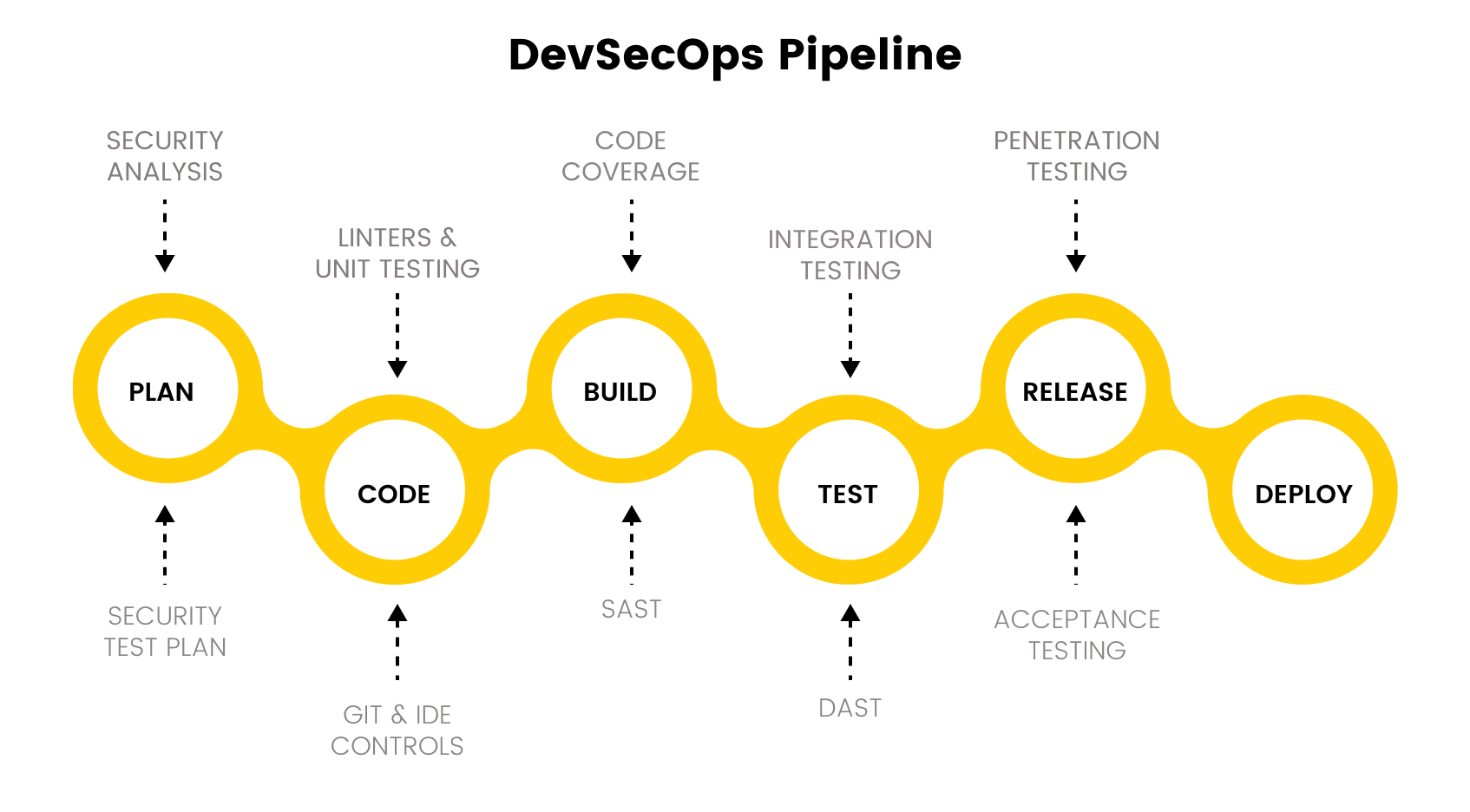Integrating Security into DevOps: The Critical Role of DevSecOps
Key Takeaways:
- Understanding DevSecOps: Merging development, security, and operations for enhanced cybersecurity.
- Benefits of DevSecOps: Streamlined processes, improved security, and accelerated development cycles.
- Implementing DevSecOps: Key strategies and tools for successful integration.
What is DevSecOps?
In an era where digital transformation is paramount, the concept of DevSecOps has emerged as a crucial aspect of cybersecurity. DevSecOps, a portmanteau of development, security, and operations, represents an evolutionary step in the world of software development and IT operations. By integrating security measures into the DevOps process, DevSecOps aims to ensure continuous delivery of high-quality and secure software products.
At Dominion Cyber Security Solutions, we recognize the significance of DevSecOps in safeguarding personal and business data against evolving cyber threats.

Why is DevSecOps Important?
- Enhanced Security: By embedding security into the CI/CD pipeline, DevSecOps ensures that security checks and balances are an integral part of the development process, rather than an afterthought.
- Faster Time to Market: DevSecOps automates security processes, which accelerates the development cycle and reduces the time to market for new software releases.
- Risk Reduction: Continuous security testing and monitoring reduce the risk of security breaches and vulnerabilities.
Leveraging services like penetration testing can further strengthen your DevSecOps practices by identifying and mitigating potential vulnerabilities early in the development cycle.
Implementing DevSecOps: A Strategic Approach
- Collaborative Culture: Encourage collaboration between development, operations, and security teams. This unified approach ensures that everyone is aligned with the security-first mindset.
- Automation and Tools: Utilize tools that automate security checks throughout the development process. This includes code analysis, vulnerability scanning, and automated compliance checks.
- Continuous Learning and Training: Stay updated with the latest security trends and practices. Offering cyber awareness training is an effective way to keep your team informed and vigilant.
The Future of DevSecOps
As digital interconnectivity continues to grow, the role of DevSecOps will become increasingly significant. Businesses must adapt to this evolving landscape by implementing robust DevSecOps practices. This not only ensures compliance with cybersecurity standards and regulations but also builds a resilient and trustworthy digital environment.
Conclusion
DevSecOps is not just a trend; it’s a necessity in today’s digital world. By integrating security into every phase of the development process, organizations can significantly enhance their cybersecurity posture while streamlining their operations.




